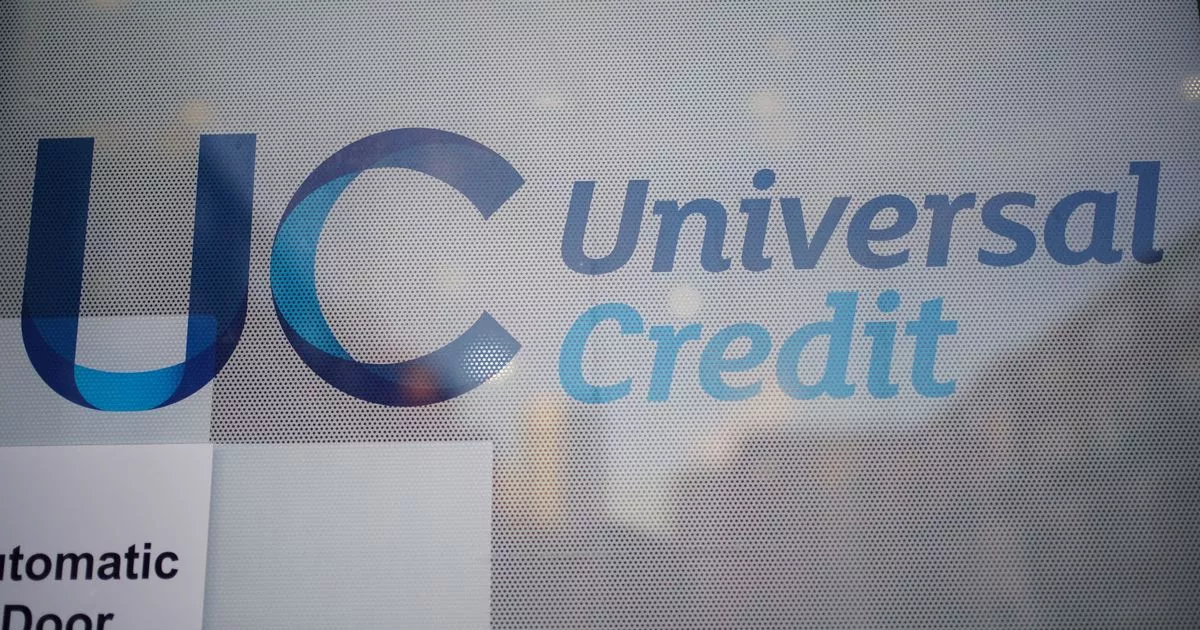Universal Credit Recipients Face Benefit Cuts Under DWP Reforms

Table of Contents
Increased Conditionality and Sanctions
The DWP is tightening the conditions claimants must fulfil to receive Universal Credit, resulting in increased pressure to find work and participate in mandatory job search activities. This heightened conditionality, coupled with stricter enforcement, translates into a higher risk of benefit sanctions.
Stricter Work Requirements
- Increased sanctions for non-compliance: Even minor deviations from the stipulated job search requirements can lead to benefit reductions. This creates a climate of fear and uncertainty for claimants.
- Reduced grace periods for finding work: Claimants have less time to secure employment before facing sanctions, placing additional pressure on those already facing difficulties.
- Impact on those with disabilities or caring responsibilities: Individuals with disabilities or caring responsibilities often face greater barriers to employment and may struggle to meet the intensified work search requirements, leading to unfair sanctions. The system needs to better accommodate individual circumstances.
Sanctions for Minor Infractions
The imposition of sanctions for minor infractions further exacerbates the situation.
- Examples of infractions leading to sanctions: Missing a single appointment, failing to update job search records promptly, or even a minor miscommunication can result in benefit deductions.
- The disproportionate impact on low-income families: Low-income families are particularly vulnerable to the financial strain caused by even small benefit reductions, potentially leading to hardship and debt.
- Difficulty appealing sanctions: The appeals process for sanctions can be lengthy, complex, and often unsuccessful, leaving claimants struggling financially while awaiting a decision.
Changes to the Tapering Rate
The tapering rate—the percentage of earnings deducted from Universal Credit—is also undergoing changes. This adjustment potentially reduces the financial incentive to work, particularly for low-wage earners.
Reduced Incentive to Work
- Explanation of how the tapering rate works: The tapering rate determines how much Universal Credit is reduced as earnings increase. Changes to this rate directly impact the net income of claimants.
- Examples of how the changes affect individuals' net income: A lowered tapering rate means claimants retain less of their earnings, potentially diminishing the incentive to take on even part-time work.
- The potential impact on the UK economy and employment rates: A reduced incentive to work could negatively affect employment rates and overall economic productivity.
Impact on Low-Income Households
Changes to the tapering rate can have a significant impact on low-income households.
- Examples showing the financial strain on vulnerable groups: Reduced income due to tapering rate adjustments could push already vulnerable families into deeper poverty and financial instability.
- The potential increase in poverty and inequality: These reforms risk exacerbating existing inequalities and widening the gap between the rich and the poor.
- Calls for government intervention and reconsideration: Many advocacy groups are calling for the government to reconsider the changes to the tapering rate, arguing they are counterproductive and detrimental to vulnerable families.
Impact on Vulnerable Groups
These Universal Credit reforms disproportionately affect vulnerable groups, including disabled claimants and single parents and families.
Disabled Claimants
- Specific examples and the challenges faced by disabled claimants: Disabled individuals often face significant barriers to employment, including physical limitations, mental health challenges, and a lack of accessible workplace accommodations.
- Lack of adequate support and resources: Insufficient support and resources for job searching and workplace adaptations further exacerbate the challenges faced by disabled claimants.
- Advocacy groups' concerns and proposed solutions: Disability advocacy groups are raising serious concerns about the potential negative impact of the reforms and proposing solutions, such as increased support services and improved accessibility.
Single Parents and Families
Single parents and families are particularly vulnerable to the effects of benefit cuts.
- The effects of benefit cuts on children's wellbeing: Benefit reductions can lead to food insecurity, housing instability, and reduced access to educational and recreational opportunities, significantly impacting children's well-being.
- The increase in reliance on food banks and other support services: Families may become increasingly reliant on food banks, homeless shelters, and other support services due to reduced income.
- The broader social implications of benefit cuts for families: The stress and financial strain caused by benefit cuts can have long-term consequences on family stability and children's development.
Potential Long-Term Consequences
The cumulative effect of these Universal Credit reforms could lead to severe long-term consequences.
Increased Poverty and Inequality
- Statistical projections and economic modeling: Economic models predict a significant increase in poverty and income inequality as a result of the changes.
- The social costs associated with increased poverty: Increased poverty has far-reaching social costs, including higher crime rates, poorer health outcomes, and decreased educational attainment.
- The long-term implications for public health and education: The long-term impacts on public health and education could be substantial, potentially straining public services for years to come.
Strain on Public Services
The increased demand for support services due to benefit cuts will strain public resources.
- The impact on local councils and community organisations: Local councils and community organizations will face increased pressure to provide essential services to those affected by the benefit cuts.
- Calls for increased funding to support vulnerable groups: Advocacy groups are calling for increased funding to support vulnerable groups and mitigate the negative impact of the reforms.
- Potential for increased crime rates due to financial hardship: Financial hardship caused by benefit cuts can lead to increased crime rates as individuals resort to desperate measures to meet their basic needs.
Conclusion
The DWP reforms to Universal Credit pose a significant threat to millions of individuals and families, potentially leading to widespread poverty, increased inequality, and an overwhelming strain on public services. The changes to conditionality, tapering rates, and the disproportionate impact on vulnerable groups are deeply concerning. It's imperative that the government reassesses these reforms and ensures that Universal Credit continues to provide an adequate safety net for those who rely on it. Learn more about how the Universal Credit benefit cuts may affect you and find resources to support you by visiting [link to relevant resource]. Understanding the complexities of Universal Credit and benefit changes is crucial for navigating this challenging situation.

Featured Posts
-
 Assassins Creed Shadows How Ray Tracing Transforms The Ps 5 Pro Experience
May 08, 2025
Assassins Creed Shadows How Ray Tracing Transforms The Ps 5 Pro Experience
May 08, 2025 -
 Twins Sweep Angels Series As Hitters Strike Out 13 Times
May 08, 2025
Twins Sweep Angels Series As Hitters Strike Out 13 Times
May 08, 2025 -
 Ankle Injury Sidelines Celtics Jayson Tatum Concerns And Recovery Timeline
May 08, 2025
Ankle Injury Sidelines Celtics Jayson Tatum Concerns And Recovery Timeline
May 08, 2025 -
 Ahsan Urges Tech Adoption To Boost Pakistans Global Trade
May 08, 2025
Ahsan Urges Tech Adoption To Boost Pakistans Global Trade
May 08, 2025 -
 Ripple Effect How Etf Applications And Sec Decisions Shape Xrps Trajectory
May 08, 2025
Ripple Effect How Etf Applications And Sec Decisions Shape Xrps Trajectory
May 08, 2025
Latest Posts
-
 3 Reasons A Princess Leia Cameo In The New Star Wars Show Is Likely
May 08, 2025
3 Reasons A Princess Leia Cameo In The New Star Wars Show Is Likely
May 08, 2025 -
 Revisiting Yavin 4 A Star Wars Perspective From A George Lucas Protege
May 08, 2025
Revisiting Yavin 4 A Star Wars Perspective From A George Lucas Protege
May 08, 2025 -
 Watch 3 Free Star Wars Andor Episodes On You Tube
May 08, 2025
Watch 3 Free Star Wars Andor Episodes On You Tube
May 08, 2025 -
 George Lucas Protege On Yavin 4s Star Wars Return The Galaxys Diminished Scale
May 08, 2025
George Lucas Protege On Yavin 4s Star Wars Return The Galaxys Diminished Scale
May 08, 2025 -
 3 Star Wars Andor Episodes Free On You Tube
May 08, 2025
3 Star Wars Andor Episodes Free On You Tube
May 08, 2025
